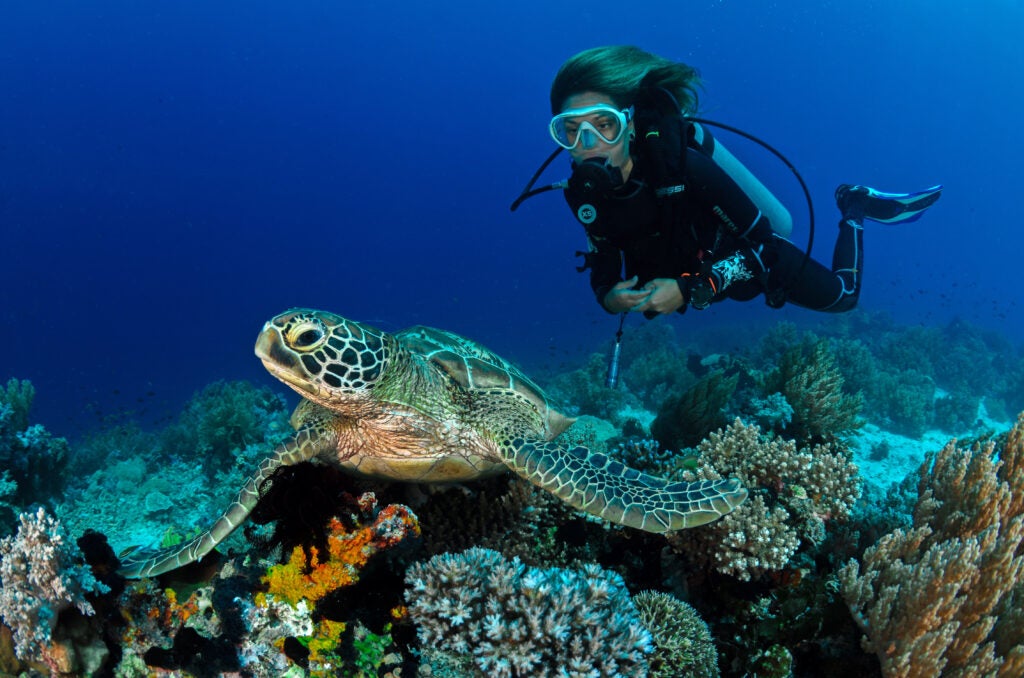#scuba Scuba Diving Insurance: Dive Accident Coverage Explained (2023) – MarketWatch
[ad_1] In addition to offering medical coverage, scuba diving travel insurance is worth the investment if you use the specific benefits it offers. Though these plans focus on health insurance and emergency services, some include other benefits, such as protection for lost or damaged dive equipment. Here is a closer look at the benefits you
[ad_1]
In addition to offering medical coverage, scuba diving travel insurance is worth the investment if you use the specific benefits it offers. Though these plans focus on health insurance and emergency services, some include other benefits, such as protection for lost or damaged dive equipment.
Here is a closer look at the benefits you can enjoy with dive insurance.
Financial Protection
Divers Alert Network puts the cost of an air ambulance at $20,000, and additional exams, monitoring, and hyperbaric chamber treatments can raise the price tag even higher. If you have dive coverage, the insurance provider covers these costs.
Policies also protect your gear from damage during transport or while in the water, so you do not have to pay resulting expenses out of pocket.
Emergency Assistance
Scuba diving insurance provides access to emergency assistance specific to scuba diving incidents. For instance, dive policies cover search and rescue operations, specialized treatment and air evacuation.
Peace of Mind
Scuba diving insurance can offer peace of mind by combining financial and emergency assistance. Each time you strap on your tank and venture underwater, you can focus on the experience instead of being preoccupied with what-ifs. You can rely on the insurance company to handle emergencies, and you are free to enjoy your diving.
Frequent scuba divers can also purchase an annual policy to cover an entire year.
The Divers Alert Network publishes examples of members who filed insurance claims for diving-related accidents. Here are three examples:
A diver suffering from barotrauma in Honduras:
After multiple days of diving within recreational limits, a diver began to display signs of decompression sickness (DCS) and experience neurological symptoms. After being evaluated by a dive medicine specialist, the diver was diagnosed with severe barotrauma and DCS. The cost of treatment was $31,763. Her primary insurance covered a fraction of these expenses, but DAN Dive Accident Insurance helped cover the remaining eligible expenses.
A diver with decompression sickness in the Maldives:
During a trip to the Maldives, a couple experienced skin rashes, dizziness and nausea after their second day of diving. When the wife collapsed, they were rushed to the hospital, and both were diagnosed with decompression sickness. The divers underwent several days of hyperbaric treatments, which cost $33,697.00. They had no travel insurance or health insurance, but their DAN Guardian Plan paid 100% of their eligible medical expenses.
A second diver with Type II (severe) decompression sickness in the Maldives:
Twenty minutes after surfacing, a DAN member in the Maldives experienced vertigo, shoulder pain, tingling sensations and a rash. When he arrived at the local clinic he was unable to stand, and over the next several days he underwent six hyperbaric treatments. This member’s Guardian dive accident insurance plan covered the majority of his medical treatments, his lost liveaboard expenses, trip cancellation fees for his future scheduled dive trip and extra accommodations fees he incurred during treatment.
Adblock test (Why?)
[ad_2]
Source link








Comments